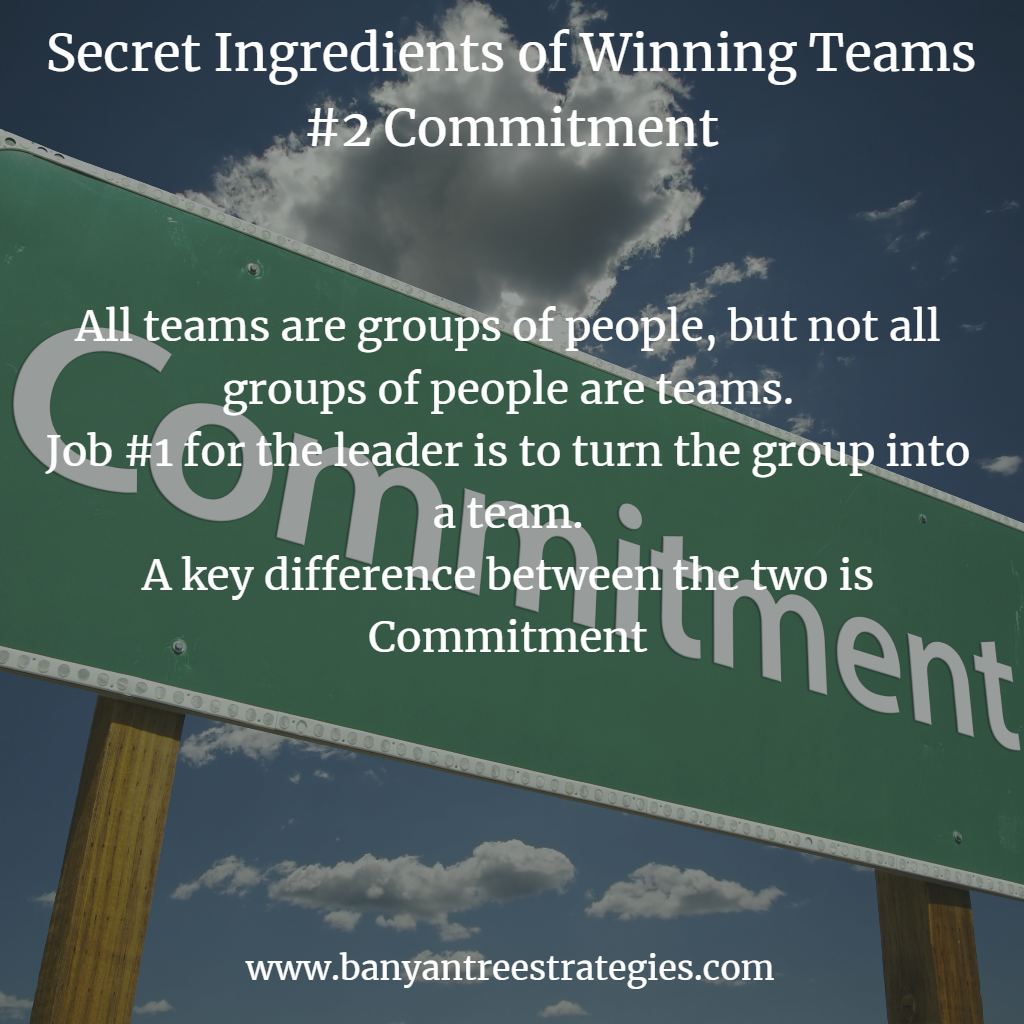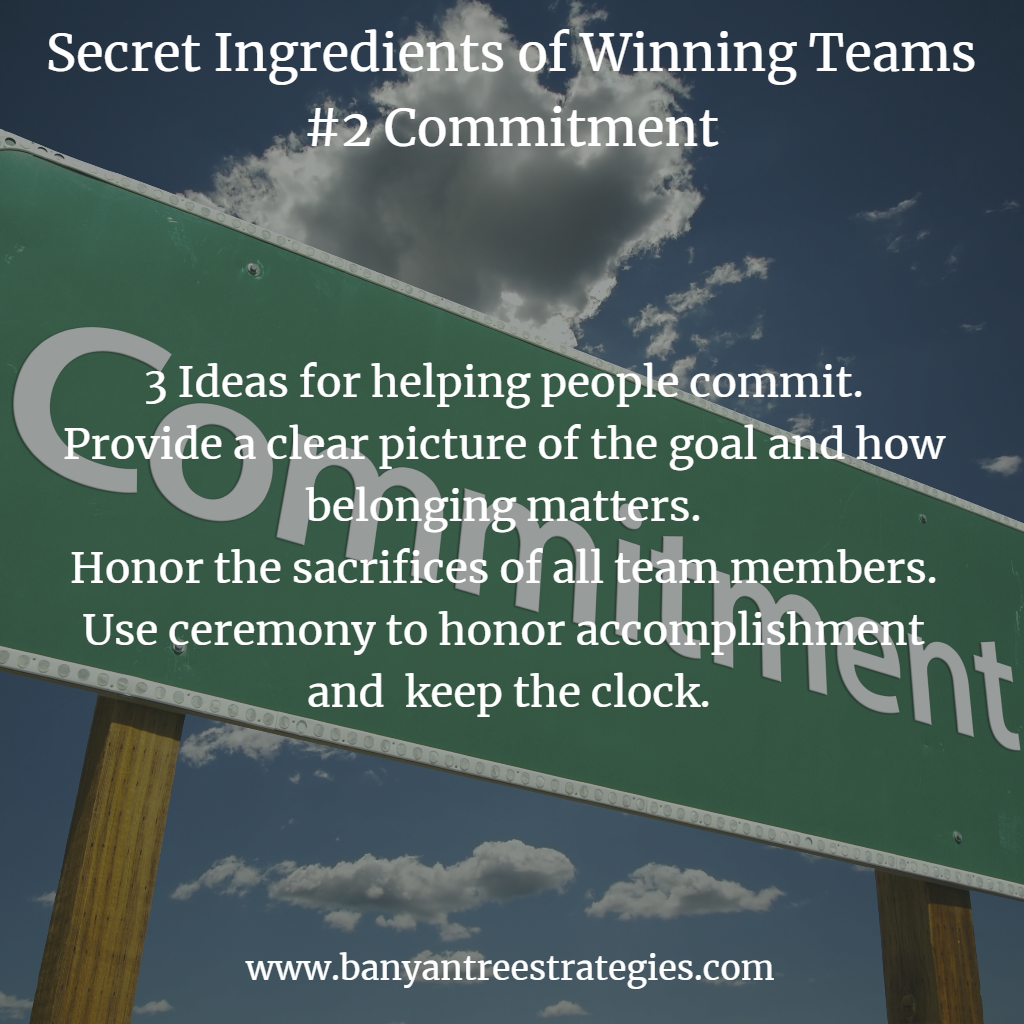Secret Ingredients of Winning Teams #2 - Commitment |
|
|
All teams are groups of people. However, not all groups of people are teams. Turning a group of people into a team is the job of every leader, and we would like to highlight our second secret ingredient for winning teams: commitment.
Several quick thoughts come to mind around the word commitment. The long-standing question in professional golf circles is: were you committed to the shot? When asked to clarify, the instructor will tell the story of how the chicken is involved in making the eggs for your breakfast, however the pig…well it had to be committed to make your bacon. NFL Analyst Herm Edwards has recently been outlining the difference between being interested in something vs. being committed. His point is well made in this video. Wouldn’t it be great if all we had to do was tell a joke or share a video to get our team or employees to care as much as we do? The reality is that several factors stand in your way. • The first has to do with the role they are playing on the team and their self-talk. They need to believe the commitment is worth it. Is it? • The second has to do with your current culture and how cool is it to care about the company’s goals. Why should they care? • The final and maybe biggest challenge is the people your employees live with and how those people view your culture. People don’t get paid to care, they get paid to complete a task. The further you get away from the person getting paid for completing the task, the more other agendas compete with your goal of having a common level of commitment. We offer three quick suggestions for getting your team to have a common level of commitment: • First, the leaders need to paint a picture that everyone can understand. The clearer the picture the more likely everyone will be able to have a similar vision of the plan in their head, and where they fit into that picture. Paint this picture again and again. Ask others to do the same and then match the images. This exchange will flush out different levels of commitment and help you have an open dialog around the effort needed to accomplish your joint goal. • Second, the leaders need to honor the sacrifices all parties are making to accomplish the agreed upon goal. This is where you should recognize the spouses and extended family that are a part of your employee’s life. If it's a sports team recognize the parents and other children who are making difficult life choices for the employee or athlete to be on the team. Every member of your unit has another group of people that are mission-critical to their overall effectiveness and if you aren’t selling your vision on the home front you could be fighting a losing battle. • Finally, we suggest that you focus on the finishing of the next set of tasks and then be fanatical about ceremony. Corporations that have winning cultures celebrate small wins with high frequency. Behavioral research from Fred Luthans points to the link between actions and consequences, with feedback loops and their duration having a large determinant on positive change. In short, reward accomplishment until accomplishment is its own reward. The less mature your team the tighter the feedback loop. For those of you who have put on the yoke of leadership and can’t understand why others are balking, give these suggestions a chance and please share with us your findings. The question is, are you committed to your own win, or the harder and more valuable team win? Go for it! Vertical Divider
|




